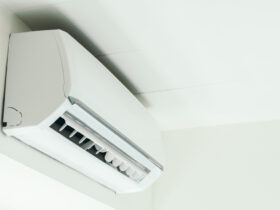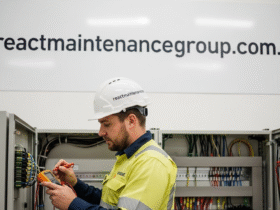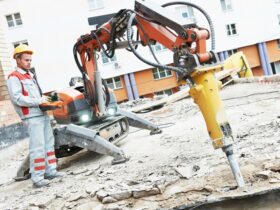Aging brings about a range of challenges, particularly concerning safety and independence. Personal alarm systems have emerged as a vital tool in enhancing the safety of the elderly, offering peace of mind not only to the users but also to their families. These devices are designed to provide immediate assistance in emergencies, ensuring that help is just a button press away. In this blog, we will explore the various benefits of personal alarm systems for elders, highlighting how these devices can significantly improve their quality of life.
1. Enhanced Safety and Security
The primary benefit of personal alarm systems is the enhanced safety and security they offer to elderly individuals. As people age, their physical abilities may decline, making them more susceptible to falls, accidents, and medical emergencies. Personal alarm systems are equipped with features that allow users to call for help immediately, ensuring that they receive timely assistance. This is particularly crucial for elderly individuals who live alone or spend significant time alone during the day.
- Fall Detection: Many modern personal alarm systems come with fall detection technology, which automatically triggers an alert if the device detects a fall. This feature is critical as falls are one of the leading causes of injury among the elderly. Automatic alerts ensure that help is dispatched even if the user is unconscious or unable to press the emergency button.
- 24/7 Monitoring: Personal alarm systems are typically connected to a monitoring center that operates 24/7. In the event of an emergency, the monitoring center can assess the situation and dispatch emergency services or contact family members as needed.
2. Promoting Independence
One of the biggest challenges faced by the elderly is the loss of independence. Many seniors prefer to live in their own homes rather than move into assisted living facilities. Personal alarm systems empower them to maintain their independence while ensuring that help is available if needed.
- Confidence in Daily Activities: Knowing that they can easily summon help in an emergency gives elderly individuals the confidence to continue with their daily activities, such as gardening, walking, or even bathing, without fear. This sense of security allows them to lead a more active and fulfilling life.
- Delaying or Avoiding Institutional Care: Personal alarm systems can help delay the need for moving into a nursing home or assisted living facility. By providing a safety net, these devices enable seniors to stay in their homes longer, which is often preferred by both the elderly and their families.
3. Peace of Mind for Families
Family members of elderly individuals often worry about their loved ones, especially if they live far away or cannot check in on them regularly. Personal alarm systems provide peace of mind to families by ensuring that their loved ones can get help quickly if something goes wrong.
- Immediate Alerts: If an emergency occurs, family members can be notified immediately. Many personal alarm systems allow for multiple contacts to be added, ensuring that someone is always available to respond to an alert.
- GPS Tracking: Some personal alarm systems come with GPS tracking features, allowing family members to locate their loved ones in real time. This feature is particularly useful for seniors who are prone to wandering or have conditions like dementia.
4. Quick and Easy to Use
Personal alarm systems are designed with simplicity in mind, making them easy for elderly individuals to use, even if they are not tech-savvy. Most devices feature a simple button that, when pressed, connects the user to a monitoring center or directly to emergency services.
- One-Touch Operation: The ease of use is a crucial factor for elderly individuals, especially in high-stress situations. With just one press of a button, they can summon help without needing to navigate complicated menus or remember complex procedures.
- Wearable Options: Personal alarm systems are available in various forms, including wearable pendants, wristbands, or clip-on devices. These wearable options ensure that the alarm is always within reach, whether the user is at home or out and about.
5. Affordable Safety Solution
Compared to the costs associated with assisted living facilities or in-home caregivers, personal alarm systems are an affordable solution for ensuring the safety of elderly individuals. Many alarm systems are available at a low monthly fee, which includes the cost of 24/7 monitoring.
- Cost-Effective: The affordability of personal alarm systems makes them accessible to a wide range of seniors, allowing them to invest in their safety without straining their finances. This is especially important for those on a fixed income.
- Insurance and Reimbursement: In some cases, health insurance plans or government programs may cover the cost of a personal alarm system, further reducing the financial burden on elderly individuals and their families.
6. Customizable Features
Modern personal alarm systems come with a range of customizable features that can be tailored to meet the specific needs of the user. This flexibility ensures that the device is not only effective but also comfortable for the user.
- Medication Reminders: Some personal alarm systems include medication reminder features, which can help elderly individuals stay on top of their medication schedules. This is particularly useful for those with multiple prescriptions or complex medication routines.
- Two-Way Communication: Many alarm systems offer two-way communication, allowing the user to speak directly with the monitoring center or emergency services. This feature enables the user to provide important information about their condition or the nature of the emergency, ensuring that the appropriate help is dispatched.
7. Promoting Social Connections
While personal alarm systems are primarily focused on safety, they can also play a role in promoting social connections for elderly individuals. Some systems include features that allow users to check in with family members or friends regularly, fostering a sense of connection and reducing feelings of isolation.
- Daily Check-Ins: Some alarm systems offer daily check-in services, where the user can press a button to confirm that they are safe. If the check-in is missed, the monitoring center will follow up to ensure everything is okay. This feature provides an additional layer of security while also promoting regular interaction with others.
- Linking with Caregivers: Personal alarm systems can also be linked with professional caregivers or healthcare providers, ensuring that they are informed of any incidents or emergencies. This integration helps create a comprehensive care network for the elderly individual.
Conclusion
Personal alarm systems are an invaluable tool for enhancing the safety, security, and independence of elderly individuals. These devices offer a wide range of benefits, from providing immediate assistance in emergencies to promoting peace of mind for families. By investing in a personal alarm system, seniors can maintain their independence and continue to live in their homes with confidence, knowing that help is always just a button press away. As technology continues to evolve, these systems are becoming even more advanced, offering additional features and customization options to meet the unique needs of elderly users. Whether it’s through fall detection, GPS tracking, or two-way communication, personal alarm systems are playing a crucial role in improving the quality of life for elders and ensuring their well-being in an increasingly complex world.











Find Us on Socials